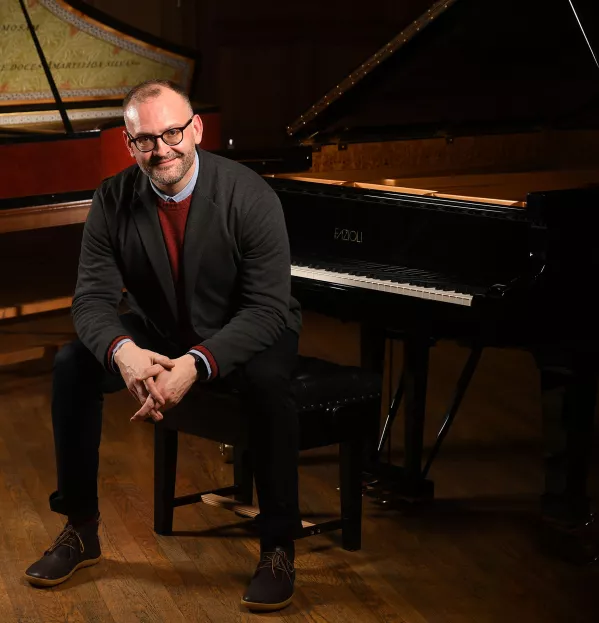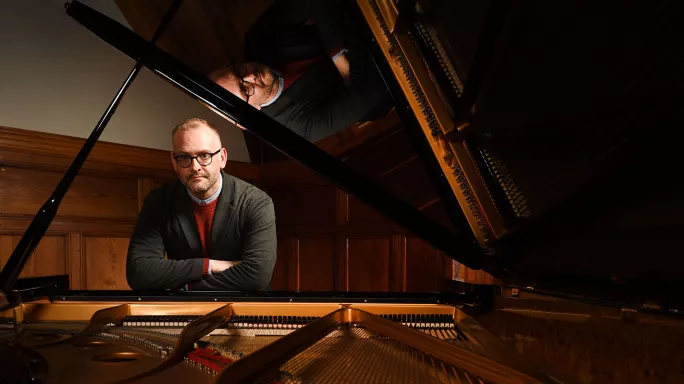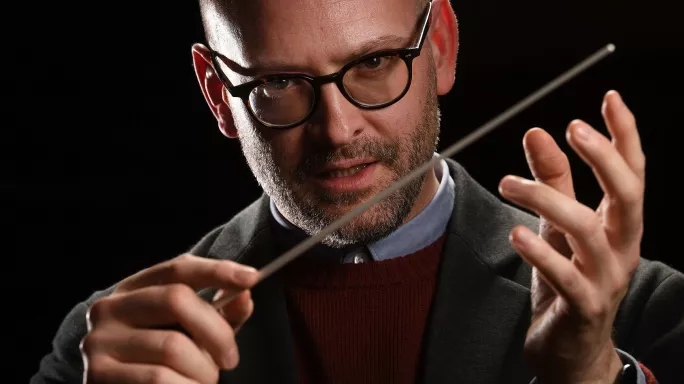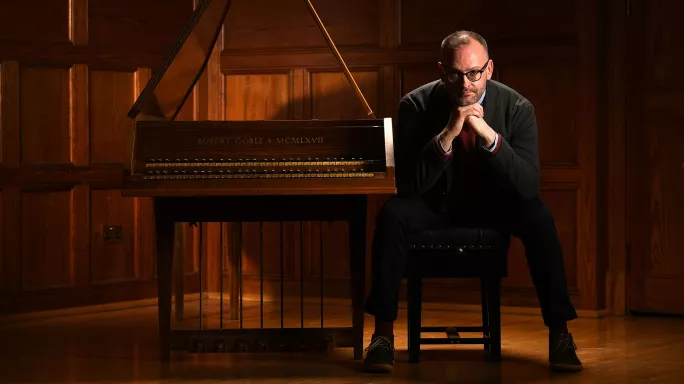- Home
- Leadership
- Strategy
- Why teachers must unite under the banner of research
Why teachers must unite under the banner of research

“We’re not a union, we’re not going to represent [teachers] on pay and conditions,” says Dr Steven Berryman, the new president of the Chartered College of Teaching (CCT).
This means the CCT won’t be picking sides in teacher debates or issuing slogans or soundbites or taking stances on polarising issues either.
What the organisation is doing is something just as important - if not more so, he says.
“We are there to represent what we do as teachers, as leaders and teaching assistants in terms of how we build on what research and evidence tells us are the best practices [and] the most effective teaching approaches that are going to yield the best outcomes for young people.”
It certainly isn’t a pithy soundbite but it’s a message that he says teachers should rally behind because it will help them to ensure their collective voices are heard in any debates about how the profession evolves.
“It’s about championing the professional expertise of individual teachers and recognising that you’re a professional, you can make decisions,” Berryman argues.

Berryman was elected CCT president in May 2022 but only actually started the role in November. The CCT itself was set up in 2017 after a Royal Charter first granted in 1849 was transferred to the new professional body, run by Dame Alison Peacock.
In the years since it has grown to more than 50,000 members and is increasingly taking a role in the policymaking process. But Berryman says it is the power of research-informed teaching and the professional standing this gives those in the classroom that really drives the organisation.
The research revolution for teachers
“It’s clear teachers are very, very engaged in looking at research,” he says, explaining that he has witnessed this engagement increase significantly since he first entered the profession in 2004 as a music teacher at a private school in Dorset.
He cites the abundance of teacher podcasts, books, debates on social media platforms and events like ResearchEd as proof of this - and data from the CCT, too.
“We had more than 600 teachers complete the Certificate in Evidence-Informed Practice last year, probably a similar number to the year before - so it’s clear there is an appetite to engage with research,” Berryman says.
This aligns clearly with the CCT’s own position, with its website stating that it exists to help teachers, “bridge the gap between practice and research” so they have the “knowledge and confidence to make the best decisions for their pupils”.
So far, though, a 50,000-strong membership means that the CCT is still only reaching one-tenth of teachers with this message - so Berryman wants to increase the number of chartered teachers to help boost its impact.
“I want us to double membership - I’d love to have over 100,000 members by the time I leave. It might be dangerously ambitious, but I think there is scope to be ambitious,” he says.
“Teachers are crying out to be recognised for their professionalism and their expertise”
Achieving that is probably going to take more than just organic growth- so how can it be done?
Berryman says a key part of the plan is for the CCT to ensure that it engages with new teachers from day one: “It’s really important we connect with those joining the profession so they recognise they can become a member of CCT and that it will be with them throughout their career.”
This means speaking at conferences for new teachers - something he and Dame Alison are already engaged in - and touting the benefits that CCT membership offers, not least that for £47.50 teachers can access all manner of research platforms that would otherwise be vastly expensive.
This is a good sales pitch for membership of the CCT - as you’d expect from its new president.

But, for Berryman, getting a bigger membership isn’t an ego trip or about the CCT growing for its own ends; rather, he says, the profession needs an organisation like the CCT with the clout of a large membership base to argue for the autonomy of teachers.
“Teachers are crying out to be recognised for their professionalism and their expertise,” he says. “The more they feel they can exercise their autonomy and their own judgement, that will hopefully keep them in the profession because they will feel like they’re being respected and celebrated and recognised for their expertise.”
Defending teachers’ autonomy
This matters now more than ever, Berryman says, because there are concerns among many that how teachers operate in the classroom is being seen as something that can be controlled from “the centre” with prescribed lessons plans and scripts that seek to remove unpredictability.
“With multi-academy trusts, particularly as they start to build these structures and get bigger and bigger and start to work at scale, there’s a real risk that you lose your ability to work, to use your autonomy, your agency,” he says.
- Need to know: Chartered College of Teaching
- Investigation: Does Chartered College have a future?
- Chartered College: Tes’ 10 questions with...Cat Scutt
These sorts of concerns - that teaching could become ever more centralised through prescriptive ways of teaching - have been raised by both Dame Alison and Cat Scutt, director of education and research at the CCT, too, in reference to new curriculum resources quango Oak National Academy.
“There is a risk of narrowing the concept of what excellent teaching is,” they wrote for Tes in February. “There is no doubt that clear presentation and explanation are vital parts of expertise in teaching, but so, too, is the ability to build relationships, to be responsive to one’s pupils, to gauge learning, provide feedback and plan next steps accordingly.”
This stand against centralisation isn’t just about quality of teaching and learning, Berryman says, but teacher retention, too.
“If we can retain that [autonomy], it’s going to keep people in the profession,” he argues.
For MAT leaders reading his comments above, it may sound like Dr Berryman sees them as an adversary. However, given the fact that he has just taken up a new post with Charter Schools Educational Trust (CSET), a MAT formed of seven schools based in Southwark, London, he’s clearly not against MATs and what they represent.
“If we can retain that autonomy, it’s going to keep people in the profession”
What’s more, his role - director of creativity, music and culture - is brand new to the trust and he believes it is a great example of the benefits and opportunities MATs can bring to education - especially in the arts.
“There’s a lot of debate, particularly in art education, about how MATs could undermine the ability for arts education to flourish because when you start doing things at scale, people might start cutting things out,” Berryman says. “But I think there’s an opportunity for MATs when you are working in scale to have someone leading the arts and it seems, anecdotally, there are increasing numbers of MATs that have someone leading music.”
He cites David Ross Education Trust, Ark, United Learning and Dixons Academies Trust as examples of MATs that have such a role, and he expects there are more out there: “I keep meeting more and more people who have taken on this role to lead music across a MAT.”
Driving this will likely have been the government’s national plan for music education, which was unveiled in June and specifically says ministers want to see “academy trusts thinking strategically about how they can support the delivery of music across their schools”.

Meanwhile, the wider cultural education plan announced in the government’s Schools White Paper last year and led by Baroness Bull, also reflects a “growing creativity agenda in education”, according to Berryman.
All of this will be music to the ears of those who want to see the importance of the arts increase in their setting - especially given that student uptake of subjects like art, music and drama at GCSE and A level remains low.
The importance of arts and culture
Berryman does not blame one thing in particular for this low uptake, although he notes that “accountability pressure” with the English Baccalaureate is one reason why some say arts is in decline, while wider economic realities could be another reason.
“[The arts] can be such fragile industries and such a hugely freelance industry - the gigging economy and all that - and that may not be hugely attractive to a young person if you’re looking ahead and projecting into your future, thinking, ‘Do I want to go and do a job where I might not have any work?” he says.
Taking on a major new role with a MAT and trying to boost uptake in steadily declining subjects would be enough for most people’s workloads - but Berryman clearly likes a challenge.
Since graduating, he’s worked as chair of GCSE music at exam body AQA, as a moderator with Cambridge Assessment International Education, as an advisory panel member to the Department for Education and as a visiting lecturer at the Royal College of Music.
So it’s perhaps unsurprising that despite only having two years as president of the CCT, he has set himself an ambitious target - something that he sees as key to winning the “long game” of convincing teachers of the power that comes if they form a united front in terms of valuing their own skill set and expertise.
“I would love to normalise membership of our professional body. I want everyone to think, ‘I’ve entered teaching, I’ve joined the CCT, because that’s what I do.’”
You need a Tes subscription to read this article
Subscribe now to read this article and get other subscriber-only content:
- Unlimited access to all Tes magazine content
- Exclusive subscriber-only stories
- Award-winning email newsletters
Already a subscriber? Log in
You need a subscription to read this article
Subscribe now to read this article and get other subscriber-only content, including:
- Unlimited access to all Tes magazine content
- Exclusive subscriber-only stories
- Award-winning email newsletters



